 2015 saw a significant increase in high-profile hacking attacks in organizations of all disciplines: healthcare, government, and even large entertainment companies all fell victim to data breaches. In light of these attacks, valuable lessons can be learned through analyzing the types of records that were stolen. In 2015, over half of all records exposed to hackers were passwords and email addresses.
2015 saw a significant increase in high-profile hacking attacks in organizations of all disciplines: healthcare, government, and even large entertainment companies all fell victim to data breaches. In light of these attacks, valuable lessons can be learned through analyzing the types of records that were stolen. In 2015, over half of all records exposed to hackers were passwords and email addresses.
Take a moment to consider the importance of such credentials; they’re used for accessing online accounts and mission-critical information that’s stored on company networks. If hackers and thieves gain access to them, they essentially acquire unrestricted access to certain accounts that may be critical to the functionality of your business. Plus, since many users use the same password across multiple accounts, having one set of credentials may give hackers a lot of access.
Here are some of the statistics revealed by the Risk Based Security report:
- In 2015, there were 4,000 reported data breaches, which exposed 736 million records.
- 40.5 percent of reported incidents occurred in organizations within the United States, with the amount of data stolen totaling around 65 percent of the data stolen throughout the entire year.
- 238 million stolen data records came from just four huge data breaches.
- 142 organizations experienced multiple data breaches in 2015.
- The US and UK combined made up 45 percent of all reported data breaches in 2015.
What You Can Do About It
If you want to keep your business safe from the seemingly endless horde of malware on the Internet, you need to be tirelessly working toward integrating proactive security solutions designed to protect your network from potential threats. One way that you can do so is by implementing powerful security measures that are designed to both prevent threats from accessing your network, and detect them from within before they cause unspoken amounts of damage. Enterprise-level firewall and antivirus solutions are great tools meant to prevent breaches, while content filtering and spam blocking solutions make your network even more resilient. These four technologies are what’s known as a Unified Threat Management solution, and it’s a critical investment for any security-minded SMB.
Another way that you can decrease the chances of being hacked is by using complex passwords that are difficult to guess, and to change these passwords consistently. Your passwords should always be long, utilizing lower and upper-case letters, numbers, and symbols. Never use the same password and usernames for multiple online accounts. Always use different credentials. If you have trouble remembering everything, an enterprise-level password manager is a great way to securely store your credentials.
In the end, it comes down to how well you protect your organization from threats. NuTech Services can educate your business on security best practices, while assisting you with the implementation of comprehensive security systems. Our solutions are designed to minimize the chances of data breaches, and to immediately resolve problems that might come up.
For more information, give us a call at 810.230.9455.

